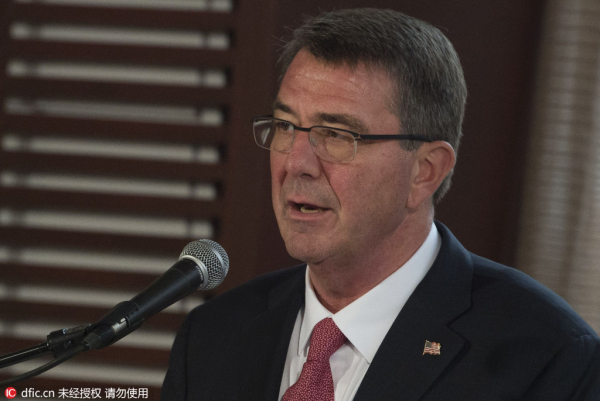 |
|
Secretary of Defense Ash Carter delivers remarks during a joint press conference with Philippine Secretary of National Defense Voltaire Gazmin at the Malacanang Palace in Manila, Philippines April 14, 2016.[Photo/IC] |
Overseas trips by politicians and military leaders are all about sending messages. So what messages are being sent by US Defense Secretary Ash Carter's ongoing visit to the Philippines?
The clearest is the US military intends to strengthen its presence in the South China Sea, which poses more threats to regional peace and stability.
As part of its "pivot to Asia" strategy, the United States has been shifting its military back to the region. Carter's trip reveals the US has put that process back on a fast track, with the expectation it will establish more bases in the Philippines.
Washington and Manila are also considering joint "freedom of navigation" operations, as the US Navy calls them, sailing through the 12-nautical-mile territorial waters around Chinese islands without gaining permission.
And emboldened by US military backing and funding, Manila is more aggressively provoking China.
It was no coincidence that a few days before Carter's visit, the Philippines resumed construction work to upgrade a military airport on one of the islands it seized from China in the 1970s.
These messages from Carter's visit have reinforced the belief in China that an encirclement of alliances is taking shape in a bid to contain China.
As well as putting pressure on China to the south, with enhanced military cooperation with the Philippines, the US has done the same to the east.
It has reassured Japan of its support in the event of any conflict over disputed islands in the East China Sea.
If the US continues to focus on military dominance in its rebalancing strategy, it is risking the peace and the security of the region for its own interests.

I’ve lived in China for quite a considerable time including my graduate school years, travelled and worked in a few cities and still choose my destination taking into consideration the density of smog or PM2.5 particulate matter in the region.
